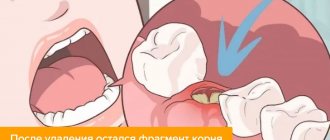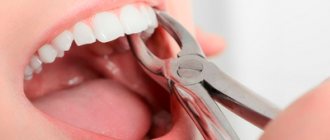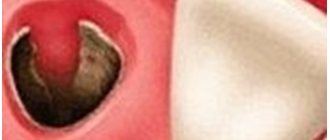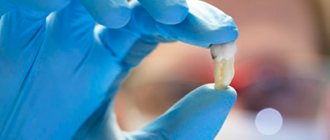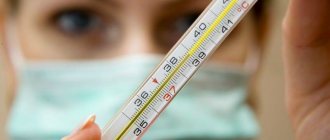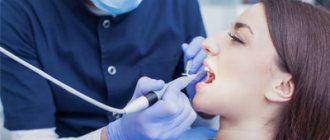After tooth extraction, especially if the procedure was complex, there is inflammation, swelling, suppuration in the mouth, you want to speed up the healing process of the wound and avoid complications from the appearance of pathogenic bacteria in it. To achieve this, surgeons often recommend mouth rinsing after surgery. But this does not always happen - sometimes the doctor will advise you not to do this.
Why is that? What is the correct way – when and with what to rinse your mouth after tooth extraction, and whether to rinse? We're talking to the doctors at the Family Smile dental clinic.
How gums heal after tooth extraction
It is worth knowing the specifics of the process in order to understand what is considered normal and what is not, and whether it is worth contacting the dentist again.
The average tissue recovery time is 10-15 days. During this period, the pain goes away, and new mucous gum tissue appears in place of the hole.
It all happens like this:
In the first two to three hours after the manipulation, the gums may bleed, and a thrombus will form in the socket - a blood clot that closes the wound from the penetration of bacteria. You shouldn’t injure him or try to spit him out.
Up to three days after the operation, the blood clot gradually thickens, decreases, and connective tissue begins to form inside the wound.
Three to seven days after the operation, the clot becomes lighter, and the hole is covered with young connective tissue. Pain and swelling go away.
After one to two weeks, bone tissue begins to form under the gum, in place of the extracted tooth.
After a couple of weeks, superficial healing is complete.
The timing may vary depending on the specific case and the patient’s health condition.
Do not ignore:
swelling, pain, bloody or other discharge from the socket that does not go away for more than 4 days.A “dry” socket is a deep cavity in the gum without a blood clot, but with a yellowish-gray, greenish, white coating and the smell of rotting.
Difficulty opening the mouth, clicking, pain in the temporomandibular joint that appeared after removal and did not go away within 2-3 days.
Numbness in parts of the gums and cheeks that did not go away after the anesthesia ended.
Runny nose, nasal congestion, and fever that appeared after removal.
In these cases, be sure to consult your doctor again.
Features of use during pregnancy and children
The drug can be used by patients of different age categories. It is absolutely safe for pregnant and nursing mothers, since it does not penetrate the mucous membrane or the upper layer of the epithelium. The active substance is not absorbed in the blood. Before using the drug, in order to prevent the manifestation of an allergic reaction, it is worth conducting a hypersensitivity test. To do this, apply a little solution to the skin in the wrist area and rub thoroughly. The body's reaction is assessed after 10–15 minutes. If there is no inflammation, redness, blisters, or rash, then Miramistin can be safely used.
The drug is indicated for children from 3 years of age. Taking the solution at an earlier age is possible only as prescribed by a doctor and under his supervision.
How to rinse your mouth after surgery
Ready-made pharmacy antiseptics and solutions made independently at home are applicable. Let's consider how to rinse your mouth after gum surgery or tooth extraction.
Your doctor may recommend not rinsing the wound on the day of surgery. Every other day, you can make oral baths with decoctions of chamomile, sage, or solutions of furatsilin, 0.05% chlorhexidine.
There are quite a few such drugs, and your doctor will give specific recommendations on what to rinse your mouth after gum or tooth removal. The choice of a suitable drug depends on the condition of the hole, the complexity of removal, the age of the patient, whether he has allergies or sensitivity to some components of the products.
Carefully! It is not recommended to use ethyl alcohol, hydrogen peroxide solution, brilliant green or iodine for rinsing. They can cause pain, burn the mucous membrane and lead to the detachment of a fresh clot.
Composition and release forms of the drug
"Miramistin" is a drug based on benzyldimethyl ammonium chloride. The concentration of the active component is 0.01%. The drug occupies a leading position among antiseptics and has a wide range of applications. Often used in dentistry. Its action is aimed at combating infections of a bacterial, fungal and viral nature. Miramistin also accelerates wound healing. By stimulating phagocytosis, it enhances the local immune response.
The drug is available in different forms. For rinsing, an aqueous or alcohol solution is used. It is transparent, practically odorless and tasteless.
How to rinse your mouth after tooth extraction
The main rule is not to rinse your mouth too vigorously. Immediately after tooth extraction, you should do oral baths rather than vigorous rinsing. Rinsing vigorously may cause the fresh clot to fall out of the socket. Bleeding will occur and healing will be delayed.
How to rinse your mouth with Chlorhexidine after tooth extraction? Let's use the example of this popular tool. First, rinse the mouth with warm boiled water to remove any remaining food. Then we put 15-20 ml of the drug into the mouth and hold it for 15-30 seconds. On the second or third day after removal, gentle rinsing movements are allowed. Spit and repeat 2-3 more times. The number of rinses during the day is 3-6.
How much to rinse your mouth after tooth extraction depends on how the healing is progressing. You can stop rinsing when young gum tissue has formed at the site of the hole.
Why is processing important?
Typically, a tooth is removed if it is so damaged that it cannot be restored. That is, both its visible part and the root are damaged, and at the same time it is not possible to install a reinforcing pin for subsequent prosthetic restoration with a crown. This procedure is possible only when the thickness of the root walls is at least 2 millimeters. If it has been severely damaged by caries, then the tooth has to be removed completely.
What is caries? This is rot, consisting of a mixture of bacteria. If even a small part of them gets into the wound left after tooth extraction, a purulent sac will certainly appear there. Moreover, all this can happen even without a pain symptom, because the dental nerve usually dies before this moment.
If the pus subsequently breaks out, it may result in blood poisoning. There are also cases where, due to bacterial infection of the wound after tooth extraction, the rotting process transferred to the jaw bone. As a result, part of it had to be removed.
And in order to prevent the above complications, the wound is treated with antiseptics and anti-inflammatory drugs. Miramistin solution (0.01%) is ideal for this, since it is active against bacteria, fungi, viruses, and at the same time strengthens local immunity and prevents the activation of the inflammatory process.
How to eat after tooth extraction
There is an opinion that it is better to fast for the first day after surgery and drink through a straw so that liquid does not get into the wound.
In fact, everything is not so: You can already eat 2-3 hours after the manipulation - the body needs strength to recover. For several days, you should include slightly warm, soft foods in your diet and avoid hard, spicy, too cold or hot foods. Optimal choice: puree soups, milk porridge, stew.
You can drink immediately after removing the cotton swab from your mouth. Contrary to popular recommendations, you should not drink through a straw - when you retract your cheeks, a vacuum effect is created, which can tear the clot from the wound.
The dentist will talk about the main points in oral care after surgery and answer questions after the procedure. Follow the recommendations so that you don’t encounter complications and healing goes quickly!
Contraindications and some features of the use of Miramistin
The drug is not used in case of hypersensitivity to benzyldimethyl ammonium chloride. Patients diagnosed with a catarrhal form of gastritis, which is provoked by an imbalance of the positive microflora of the gastrointestinal tract, should use the solution carefully. Miramistin enhances the effect of antibiotics. When using drugs together, it is necessary to adjust their dosages. The likelihood of adverse reactions occurring when taking the solution is very low.
The use of Miramistin for more than a week is not recommended, since it has an aggressive effect on the microflora of the oral cavity. Otherwise, the number of beneficial bacteria on the mucous membrane will decrease significantly. She will become vulnerable to various diseases. For example, stomatitis may develop.
With rinsing, the pain subsides on the second or third day. Bleeding should be minimal. The saliva may be slightly pink in the first two days. If you feel worse when rinsing, or local symptoms increase rather than go away, you should visit your doctor.
How to stop bleeding?
In some cases, if it is not possible to see a doctor, you can stop the bleeding yourself.
- A tight tampon twisted from cotton wool or gauze should be placed on the bleeding hole. Then squeeze your jaws tightly and do not loosen them for 15-20 minutes. If after such a procedure the tampon is not completely saturated with blood, then the bleeding has been stopped. A blood clot has formed at the site of the bleeding, which cannot be disturbed for at least a few hours.
- In case of a fiasco with the previous method, the procedure must be repeated again. Only the tampon now needs to be soaked in a 3% hydrogen peroxide solution.
- If the bleeding is too severe, then you should consult a doctor. At the dentist's appointment, electrocoagulation may be performed or stitches may be placed.
- If after all these manipulations the bleeding does not stop, you need to use medications that increase blood clotting. Prolonged bleeding (several days) entails urgent hospitalization.
What do we have to do
After the removal procedure, you need to limit your activity for a while, adhere to a healthy lifestyle and diet.
It is better to take the so-called “sick leave” - spend time at home in a calm environment, closely monitoring your condition.
Smoking and drinking alcoholic beverages are prohibited; it is better to abstain from them.
The menu for the recovery period should consist of nutritious food that does not require thorough chewing. It is better to reduce the number of meals by increasing the calorie content of dishes.
It is imperative to carry out hygienic procedures, since ignoring them can trigger an inflammatory process in the socket of an extracted tooth.
Mouth rinsing is prohibited; it is better to replace it with medicinal baths.
You need to make sure that the postoperative sutures do not come apart; to do this, you should not open your mouth wide or strain your facial muscles.
Is it possible to brush your teeth
Oral hygiene must be observed. But there are a few points worth paying attention to:
- Do not touch the hole with the brush,
- reduce the amount of paste,
- rinse your mouth very carefully and slowly.
And one more thing: never take medications without a doctor’s prescription. In simple cases, medications will not be needed, at most a light pain reliever. In difficult cases, the dentist will prescribe an antibiotic and an antihistamine.
Using these recommendations, you will survive tooth extraction easily and unnoticed. If you have any other questions, call ART Dent dentistry, our specialists will definitely help you.
What not to do
In order to avoid any complications after surgery to remove any tooth, you must follow the following rules:
- Do not eat or drink anything for 3 hours after surgery;
- It is not recommended to eat hot, spicy, hard and fine-grained foods, or drink hot drinks. The load when chewing food must be transferred to the healthy side of the jaw;
- For 3 days, limit physical activity and procedures that increase blood pressure or increase blood flow. Do not take hot baths. Bathhouse, sauna, solarium, visiting the beach are prohibited;
- Do not touch the hole with your tongue, finger, toothbrush, or toothpick;
- Do not rinse your mouth;
- Do not ignore the advice, recommendations and prescriptions of the dentist. Do not violate your medication schedule.
If the patient has any doubts about his condition or questions for the doctor, he should not put off calling the clinic “for later.”


